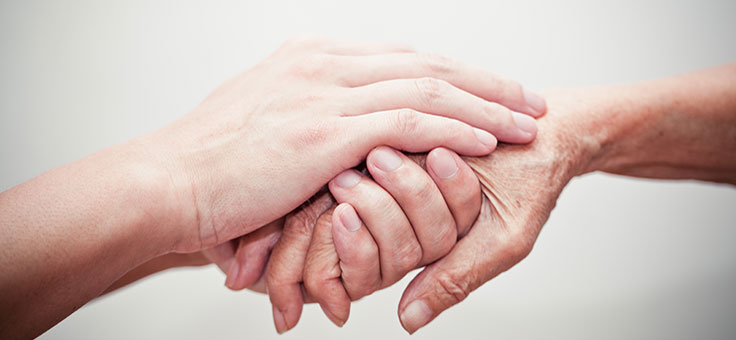Frequently Asked Questions About Palliative Care
If you’re the primary caregiver to a relative or friend with a chronic illness, you may have heard that palliative care can help. But what is palliative care anyway? While it’s sometimes thought to be end-of-life care, palliative care actually helps patients and families manage the disease and improve overall well-being.
We asked MetroHealth’s Michael D. Harrington, MD, a palliative medicine specialist, for answers to some of the most common questions caregivers have about this special kind of care, and whether it might help their loved ones.
Q: What does palliative care mean?
A: Palliative care is a specialized medical care focused on relieving the symptoms and stress of a serious illness and appropriate at any stage of the illness. Palliative care experts ask patients about their values and goals, helping them to maintain control of their care. Palliative care can begin at the time of the diagnosis of an illness and occur alongside curative treatment. “The goal is to improve patients’ quality of life and daily function,” said Dr. Harrington.
Q: What health care providers are part of the palliative care team?
A: A patient’s palliative care team may include doctors, nurses, social workers, psychologists and other counselors, and physical and rehabilitation therapists.
Q: What sort of approaches are used in palliative care?
A: “Palliative care is available through home-based programs and inpatient and outpatient programs,” said Dr. Harrington. The approach is patient focused depending on diagnosis, prognosis and patient goals for their care. In addition to prescribing medications for pain relief, palliative care can include treatments for symptoms such as nausea, shortness of breath, fatigue, constipation, depression, anxiety and difficulty sleeping.
Q: How is palliative care different from hospice care?
A: Hospice care eligibility starts in the last six months of life, and goals are to provide comfort and support to patient and family. Palliative care can be concurrent with curative care and start any time along a disease course.
Q: What can I do to help my loved one?
A: “Caregivers should ask themselves whether their loved ones are getting the best possible care,” said Dr. Harrington. Are their symptoms being managed? Do they have a sense of their prognosis and how to plan for the future? Are they well supported physically and emotionally? Once caregivers know the answers to these questions, they can better advocate for their friend or family member, enlisting the expertise of palliative care specialists.
For more information, or to schedule an appointment with a palliative care doctor, call 216-778-2343.
Contributor:

Michael D. Harrington, MD
Palliative Medicine Specialist











